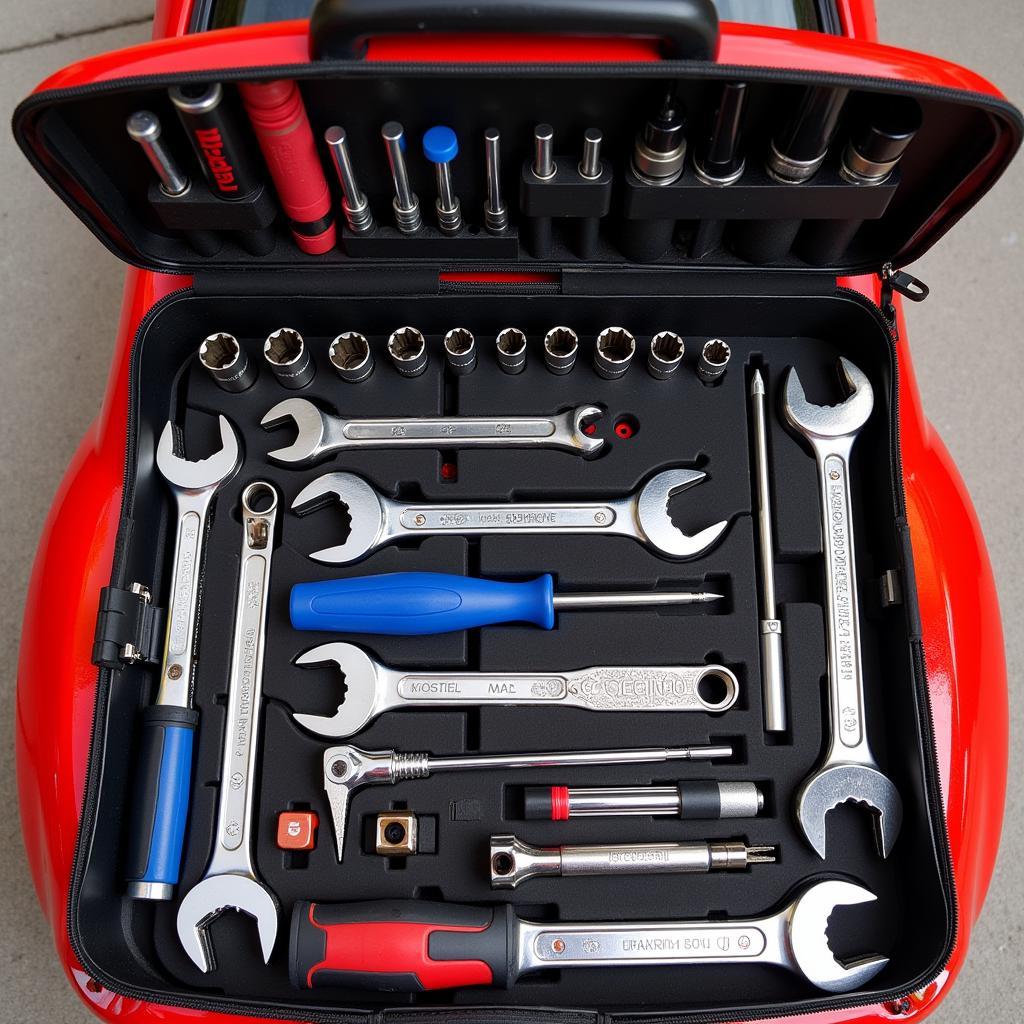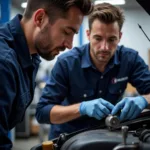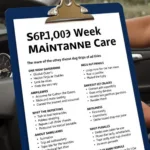Servicing your own car can seem like a daunting task, especially with today’s increasingly complex vehicles. However, with the right knowledge, tools, and a little bit of elbow grease, it’s entirely possible to handle many basic car maintenance tasks yourself.
Is DIY Car Service Right for You?
Before you dive under the hood, it’s important to assess your comfort level and mechanical aptitude. While some car maintenance tasks are relatively straightforward, others can be intricate and require specialized tools.
Ask yourself:
- How comfortable am I with basic tools?
- Do I have a basic understanding of how a car works?
- Am I willing to invest time in learning new skills?
- Do I have a safe and well-lit space to work on my car?
If you answered yes to most of these questions, then DIY car service might be a good fit for you.
Benefits of Servicing Your Own Car
There are numerous advantages to taking car maintenance into your own hands:
- Cost Savings: One of the most significant benefits is the potential to save money on labor costs charged by professional mechanics.
- Increased Knowledge: Working on your car provides a hands-on understanding of how it operates, allowing you to identify potential issues early on.
- Sense of Accomplishment: There’s a unique sense of pride that comes with successfully completing a car maintenance task yourself.
- Convenience: You can work on your own schedule and avoid the hassle of scheduling appointments and transporting your car to a mechanic.
Common Car Service Tasks You Can Do at Home
There are many routine car maintenance tasks that are well within the reach of most DIYers. Here’s a look at some of the most common:
1. Changing the Oil and Oil Filter
One of the most essential car maintenance tasks is also one of the most approachable for beginners. Changing your oil and oil filter regularly ensures your engine remains properly lubricated and running smoothly.
2. Replacing the Air Filter
A clogged air filter can restrict airflow to your engine, impacting performance and fuel efficiency. Fortunately, replacing the air filter is a quick and easy task that requires minimal tools.
3. Checking and Topping Off Fluids
Your car relies on various fluids to function correctly, including coolant, brake fluid, power steering fluid, and windshield washer fluid. Regularly checking and topping off these fluids is crucial for maintaining your car’s health.
4. Replacing Spark Plugs
Spark plugs ignite the fuel-air mixture in your engine’s cylinders. Over time, they can wear down, leading to reduced performance. Replacing spark plugs is a relatively straightforward task that can improve your engine’s efficiency.
5. Changing a Flat Tire
Knowing how to change a flat tire is an essential skill for any driver. It can save you time, money, and potential danger on the road.
“Having a basic understanding of car maintenance can not only save you money but also empower you to address minor issues before they escalate into major problems,” says master mechanic, John Smith, owner of Smith’s Auto Repair.
When to Consult a Professional Mechanic
While DIY car service can be rewarding, it’s crucial to recognize your limitations. Certain repairs require specialized knowledge, tools, or both.
Consider consulting a professional mechanic for:
- Complex engine repairs
- Transmission issues
- Electrical system problems
- Advanced safety system repairs
- Anything beyond your comfort level
Conclusion
Learning to service your own car can be an empowering and cost-effective way to keep your vehicle running smoothly. By starting with basic maintenance tasks and gradually expanding your knowledge, you can take greater control of your car’s upkeep and enjoy the satisfaction of doing it yourself. However, always remember to prioritize safety and consult a professional mechanic when in doubt.



